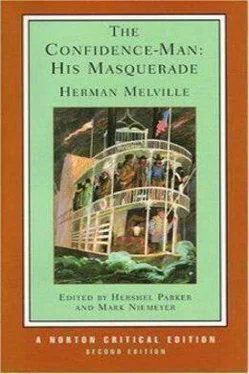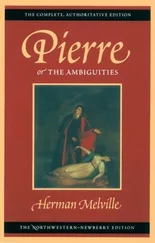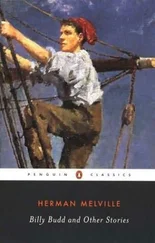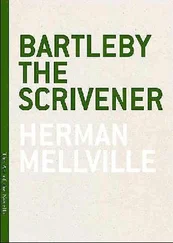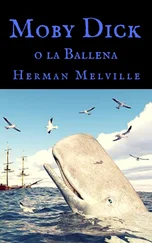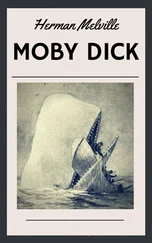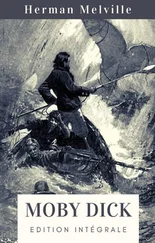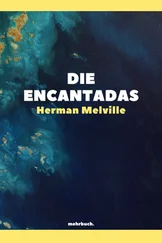"Now then," said the boy, again addressing the old man. "With your traveler's lock on your door to–night, you will think yourself all safe, won't you?"
"I think I will, child."
"But how about the window?"
"Dear me, the window, child. I never thought of that. I must see to that."
"Never you mind about the window," said the boy, "nor, to be honor bright, about the traveler's lock either, (though I ain't sorry for selling one), do you just buy one of these little jokers," producing a number of suspender–like objects, which he dangled before the old man; "money–belts, sir; only fifty cents."
"Money–belt? never heard of such a thing."
"A sort of pocket–book," said the boy, "only a safer sort. Very good for travelers."
"Oh, a pocket–book. Queer looking pocket–books though, seems to me. Ain't they rather long and narrow for pocket–books?"
"They go round the waist, sir, inside," said the boy "door open or locked, wide awake on your feet or fast asleep in your chair, impossible to be robbed with a money–belt."
"I see, I see. It would be hard to rob one's money–belt. And I was told to–day the Mississippi is a bad river for pick–pockets. How much are they?"
"Only fifty cents, sir."
"I'll take one. There!"
"Thank–ee. And now there's a present for ye," with which, drawing from his breast a batch of little papers, he threw one before the old man, who, looking at it, read " Counterfeit Detector ."
"Very good thing," said the boy, "I give it to all my customers who trade seventy–five cents' worth; best present can be made them. Sell you a money–belt, sir?" turning to the cosmopolitan.
"Excuse me, my fine fellow, but I never use that sort of thing; my money I carry loose."
"Loose bait ain't bad," said the boy, "look a lie and find the truth; don't care about a Counterfeit Detector, do ye? or is the wind East, d'ye think?"
"Child," said the old man in some concern, "you mustn't sit up any longer, it affects your mind; there, go away, go to bed."
"If I had some people's brains to lie on. I would," said the boy, "but planks is hard, you know."
"Go, child—go, go!"
"Yes, child,—yes, yes," said the boy, with which roguish parody, by way of congé, he scraped back his hard foot on the woven flowers of the carpet, much as a mischievous steer in May scrapes back his horny hoof in the pasture; and then with a flourish of his hat—which, like the rest of his tatters, was, thanks to hard times, a belonging beyond his years, though not beyond his experience, being a grown man's cast–off beaver—turned, and with the air of a young Caffre, quitted the place.
"That's a strange boy," said the old man, looking after him. "I wonder who's his mother; and whether she knows what late hours he keeps?"
"The probability is," observed the other, "that his mother does not know. But if you remember, sir, you were saying something, when the boy interrupted you with his door."
"So I was.—Let me see," unmindful of his purchases for the moment, "what, now, was it? What was that I was saying? Do you remember?"
"Not perfectly, sir; but, if I am not mistaken, it was something like this: you hoped you did not distrust the creature; for that would imply distrust of the Creator."
"Yes, that was something like it," mechanically and unintelligently letting his eye fall now on his purchases.
"Pray, will you put your money in your belt to–night?"
"It's best, ain't it?" with a slight start. "Never too late to be cautious. 'Beware of pick–pockets' is all over the boat."
"Yes, and it must have been the Son of Sirach, or some other morbid cynic, who put them there. But that's not to the purpose. Since you are minded to it, pray, sir, let me help you about the belt. I think that, between us, we can make a secure thing of it."
"Oh no, no, no!" said the old man, not unperturbed, "no, no, I wouldn't trouble you for the world," then, nervously folding up the belt, "and I won't be so impolite as to do it for myself, before you, either. But, now that I think of it," after a pause, carefully taking a little wad from a remote corner of his vest pocket, "here are two bills they gave me at St. Louis, yesterday. No doubt they are all right; but just to pass time, I'll compare them with the Detector here. Blessed boy to make me such a present. Public benefactor, that little boy!"
Laying the Detector square before him on the table, he then, with something of the air of an officer bringing by the collar a brace of culprits to the bar, placed the two bills opposite the Detector, upon which, the examination began, lasting some time, prosecuted with no small research and vigilance, the forefinger of the right hand proving of lawyer–like efficacy in tracing out and pointing the evidence, whichever way it might go.
After watching him a while, the cosmopolitan said in a formal voice, "Well, what say you, Mr. Foreman; guilty, or not guilty?—Not guilty, ain't it?"
"I don't know, I don't know," returned the old man, perplexed, "there's so many marks of all sorts to go by, it makes it a kind of uncertain. Here, now, is this bill," touching one, "it looks to be a three dollar bill on the Vicksburgh Trust and Insurance Banking Company. Well, the Detector says―"
"But why, in this case, care what it says? Trust and Insurance! What more would you have?"
"No; but the Detector says, among fifty other things, that, if a good bill, it must have, thickened here and there into the substance of the paper, little wavy spots of red; and it says they must have a kind of silky feel, being made by the lint of a red silk handkerchief stirred up in the paper–maker's vat—the paper being made to order for the company."
"Well, and is―"
"Stay. But then it adds, that sign is not always to be relied on; for some good bills get so worn, the red marks get rubbed out. And that's the case with my bill here—see how old it is—or else it's a counterfeit, or else—I don't see right—or else—dear, dear me—I don't know what else to think."
"What a peck of trouble that Detector makes for you now; believe me, the bill is good; don't be so distrustful. Proves what I've always thought, that much of the want of confidence, in these days, is owing to these Counterfeit Detectors you see on every desk and counter. Puts people up to suspecting good bills. Throw it away, I beg, if only because of the trouble it breeds you."
"No; it's troublesome, but I think I'll keep it.—Stay, now, here's another sign. It says that, if the bill is good, it must have in one corner, mixed in with the vignette, the figure of a goose, very small, indeed, all but microscopic; and, for added precaution, like the figure of Napoleon outlined by the tree, not observable, even if magnified, unless the attention is directed to it. Now, pore over it as I will, I can't see this goose."
"Can't see the goose? why, I can; and a famous goose it is. There" (reaching over and pointing to a spot in the vignette).
"I don't see it—dear me—I don't see the goose. Is it a real goose?"
"A perfect goose; beautiful goose."
"Dear, dear, I don't see it."
"Then throw that Detector away, I say again; it only makes you purblind; don't you see what a wild–goose chase it has led you? The bill is good. Throw the Detector away."
"No; it ain't so satisfactory as I thought for, but I must examine this other bill."
"As you please, but I can't in conscience assist you any more; pray, then, excuse me."
So, while the old man with much painstakings resumed his work, the cosmopolitan, to allow him every facility, resumed his reading. At length, seeing that he had given up his undertaking as hopeless, and was at leisure again, the cosmopolitan addressed some gravely interesting remarks to him about the book before him, and, presently, becoming more and more grave, said, as he turned the large volume slowly over on the table, and with much difficulty traced the faded remains of the gilt inscription giving the name of the society who had presented it to the boat, "Ah, sir, though every one must be pleased at the thought of the presence in public places of such a book, yet there is something that abates the satisfaction. Look at this volume; on the outside, battered as any old valise in the baggage–room; and inside, white and virgin as the hearts of lilies in bud."
Читать дальше
